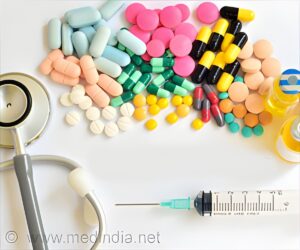Squid Protein Units Up Foundation of New Self-Therapeutic Biomaterial

[ad_1]
This, in flip, creates a type of tissue scaffold. Since collagen fibers are sturdy, elastic, and function alerts that decide the cell’s so-called future, in drugs. They’re used as an atmosphere to speed up the expansion and differentiation of tissues.
Nonetheless, even essentially the most superior applied sciences are unable to create collagen «networks» that precisely repeat the construction of a pure mobile atmosphere, most favorable for its regeneration, or in different phrases, tissue restore.
Protein Extracted from Squid Might Enhance Tissue Development for Regenerative Drugs
This huge marine animal is the preferred industrial species of squid that’s utilized in cooking and by scientists when learning animal brains and habits. Contemplating the supply and excessive volumes of Dosidicus gigas catch (as much as 700 tons a 12 months), this species could but develop into a supply of collagen for medical functions on an industrial scale.
Commercial
They extracted collagen from the squid’s pores and skin, then the protein was blended with glycerin and water and dried in a particular chamber, to form it into the type of a scaffold. The sturdiness and elasticity of the ensuing fibrous materials have been then examined by stretching the pattern.
It turned out that the fabric’s mechanical properties matched these already used as cell scaffolds in regenerative drugs. Evaluation of amino acid sequence, which is a part of the protein, has proven that the Dosidicus gigas collagen is like mammal collagen, making it potential for use when working with human cell cultures with no danger of rejection.
To experimentally show that the squid scaffold is appropriate for rising human cells, scientists have positioned samples into small plastic nutrient-filled partitions and afterward utilized human stem cell cultures onto their surfaces.
Cell tradition remark has proven that in 4 days the cells strongly certain to the collagen scaffold, forming an enormous community with one another. In addition to that, cells started to actively work together with the substrate, reworking it and releasing extracellular matrix into the atmosphere molecules that play an essential function in tissue restoration.
Therefore, researchers have concluded that squid collagen has no poisonous impact for the reason that median survival of cells that have been cultivated there was 90%. The outcomes of the work have already attracted the curiosity of the business. For instance, just one firm, Varseas, produces collagen of the described sort in Russia.
Supply: Newswise
[ad_2]
Source_link




